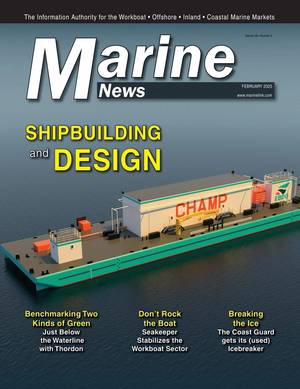Ocean Transportation Corporation
IN the revival of the shipping activities of peace the United States is resuming with increased volume and closer touch its relations with the European countries, and its resources and facilities are such that it is better equipped for reciprocal trade of imports and exports than any other country.
Especially gratifying are its enlarged commercial relations with Spain, Portugal and Italy, countries which are becoming much more favorable markets for American products than at any former period in the history of our international commerce. In addition there is a growing appreciation of the fact that America can with benefit use a much larger proportion of the products of those countries than ever before.
Of the shipping business between the United States and those regions a leading representative is the Ocean Transportation Corporation of 23 and 25 Beaver Street, New York. The business was established in October, 1914, by Julio L. Forbes and William F. Vidal, both of whom had about twelve years of previous steamship experience, having been formerly connected with the Royal Spanish Line. They thus brought to the business the benefit of a thorough knowledge of trade conditions in the Iberian Peninsula and valuable connections in Spain and Portugal, which gave them facilities for service to the American shipping community such as few possessed. Moreover, they had connections here which had made them well known in maritime circles and thus in establishing a steamship line, were able to start it as an instant success, since then developing the business to steadily increasing dimensions year by year.
In May, 1915, they incorporated their business as the Ocean Transportation Corporation with William F. Yidal as president and Julio L. Forbes as vice-president and general manager. The business during the war was active though, of course, beset with difficulties, but with the end of hostilities there has come a progressive revival of business with those countries which has been met by this company with a steady expansion of facilities and the extension of its representation in Spain, Portugal and Italy, having agencies established in all the principal ports of these countries. Through these the corporation is placed in close and intimate touch with all important ports and is enabled to serve the large and increasing number of shippers using its service with signal efficiency.
The business of their company covers the trans-portation of cargoes by direct service from New York to Lisbon, Cadiz, Barcelona and Genoa, and they also issue through bills of lading to all Spanish, Portuguese, and Italian ports. There is no shipping firm in this country better able to serve the transportation needs of American shippers to those countries than the Ocean Transportation Company. To ports in those countries other than the four mentioned the company has contract arrangements with local and coastwise lines that enable them in each case to trans-ship to the most convenient port on their through bills of lading.
There are no European countries where there is a better field for the introduction of American agricultural products and manufactured goods than those which are reached by the regular service of the Ocean Transportation Corporation. During the progress of the recent war the trade of the United States with Spain was less restricted than to any other of the neutral countries of Europe. The Atlantic seaboard of Spain, though not immune, was less commonly the scene of U-boat devastation than other European waters. The Ocean Transportation Corporation, though like all the other shipping companies subjected to restrictions and embargoes of various degrees, was able through the war period to keep up a fairly regular service of at least one ship monthly. As a result it started business relations of considerable. Importance between mercantile interests in Spain and Portugal and those in America. A con-siderable part of that trade, started in war time, is retained, while at the same time, with the repeal of annoying restrictions, much new business is being built up. There is an increasing demand in each country for the products of the other, and as in the case of these countries the interchange is mutually of commodities not competitive with home industries, there is an advantage to both sides of the bargain in the mutual interchange of commodities.
In Spain there is a revival of interest in productive industries which looks forward to a large development of industries and public improvements. These open a field of importance for the introduction of American machinery of various branches, and an increased demand for electrical supplies, in which there already exists a large export trade from the United States to Spain. A further advantage of such interchange of commodities by what, in effect, makes a system of barter, is the degree to which such mutual interchange tends to stabilize the rate of exchange. Where there is little or no fluctuation in the exchange rate, capital and industry have their sta-bility safeguarded.
The conditions of trade, therefore, between the United States and Spain are most auspicious for the building up of mutually agreeable trade relations. What applies to Spain is appropriate in a considerable degree to Portugal. Both countries are having larger dealings and more cordial transactions than ever before. This is shown by the favorable statistics of imports and exports on both sides of the Atlantic, exhibiting steady growth in international transactions.
Spain is now under a progressive commercial regime which will make it more and more a country of extended commercial relations with the United States. Its olive groves and vineyards make it the most productive of all countries in olive oil, olives and raisins, and these commodities with wines, fruits and nuts constitute most important features in the total of its exports. Spain is also a mining country with large products of iron, coal, copper and lead. The products of Portugal are similar, and of Italy's products the United States has for years been a large importer. The trade of these countries with the United States is growing because for many articles of common use which they formerly secured from other European nations they are now looking to the United States as their principal source of supply.
During the latter part of the war period the Ocean Transportation Corporation was compelled by the conditions to discontinue its service to Italy, but with the end of hostilities and the lifting of embargoes the trade of the corporation has been resumed with that country, in addition to the service which during the war has been built up in trade between the United States and Spain, Portugal and the Canary Islands. The service of the company is growing into increased favor with American shippers because it is more direct and faster than that of most competing lines, and because the arrangements of the Corporation with the other side are so well established that delay or detention on goods shipped on through bills of lading are eliminated.
For the mutual interchange of the products of these countries with those of the United States the Ocean Transportation Corporation is a valuable and well equipped intermediary. William F. Vidal, the president of the company, has had a long experience in shipping business, and this experience has been especially in the trade with Spanish ports. He and Mr. Forbes, in organiz-ing this company, had in view the inauguration of methods best calculated to promote larger trade relations between the two sides of the Atlantic. They both possessed the advantage of personal acquaintance and excellent reputation in the business circles in Spain, and especially in the ports of Cadiz and Barcelona. Their personal attention has therefore been devoted to the business with a full knowledge of the ports for which their vessels are cleared, and that cargoes will receive prompt and efficient attention at the ports of their destination.
Both Mr. Vidal, the president, and Mr. Forbes, the vice-president and general manager, have long been identified with commercial and shipping activities in New York. Mr. Forbes, who is of distinguished Spanish lineage, was born in Gibraltar and is of Spanish descent, was educated in some of the best schools of England, and has been a resident of New York since 1903. He is equally conversant not only with the languages, but also with the social and commercial usages of Spain, Great Britain and the United States. In every respect the company is ably managed. The officers are aided by an efficient staff and the business is conducted on sound and correct commercial principles.





